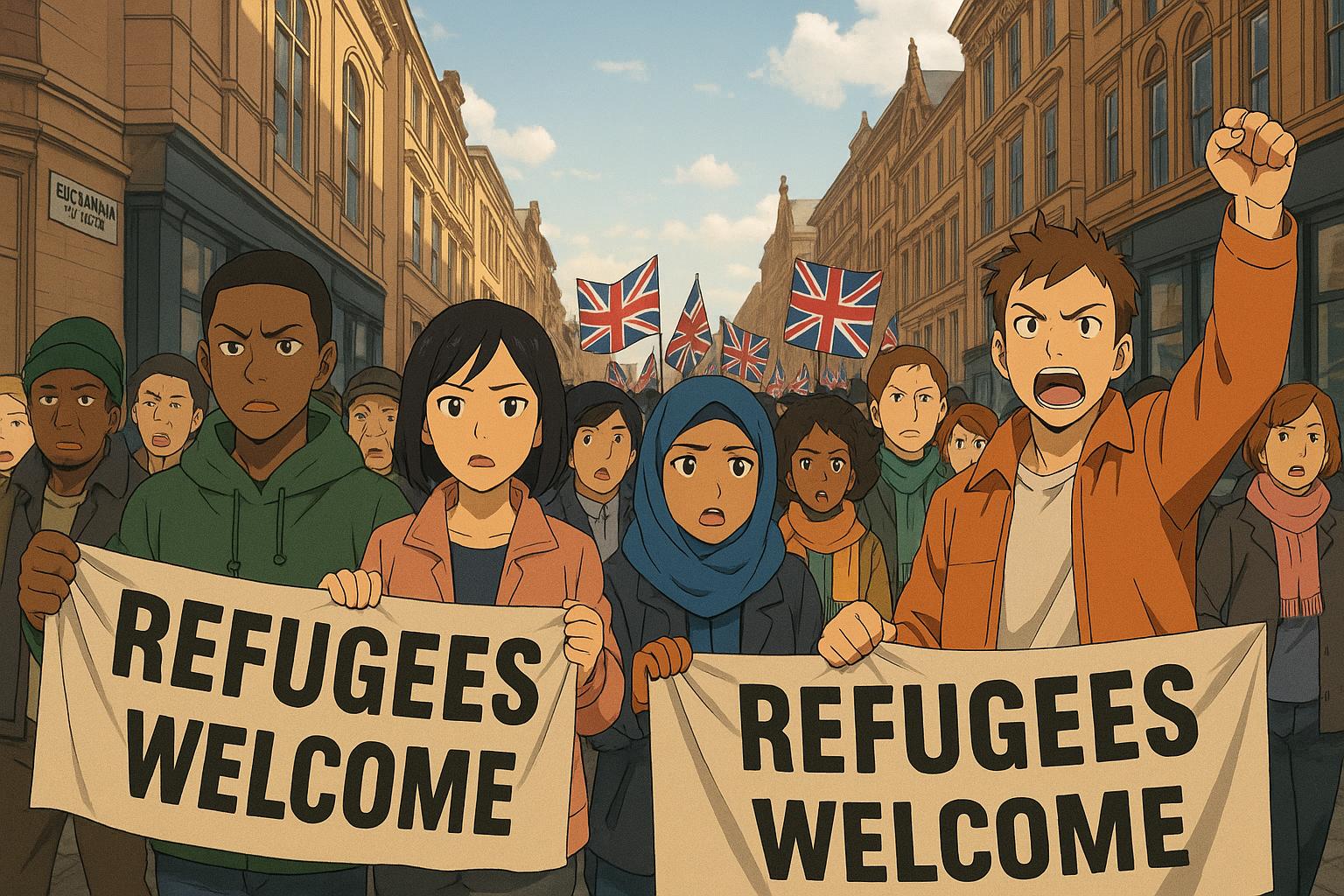In Glasgow, a far-right rally organised by "The Great British National Strike" unfolded against the backdrop of a significant counter-protest aimed at opposing racism and xenophobia. The event, which took place at Buchanan Street, drew a heavy police presence as law enforcement worked to separate the two rival groups. This protest formed part of a broader series of demonstrations orchestrated across multiple Scottish cities, including Aberdeen, Dundee, and Edinburgh, all reflecting a troubling surge in far-right activity in the region.
Richard Donaldson, the leader of the far-right coalition, articulated his opposition to several modern policies, particularly illegal immigration, net-zero emissions, and what he described as a "two-tier justice" system. The demonstration featured participants waving Union Jacks and displaying banners emblazoned with the phrase "Free Tommy Robinson," signalling their alignment with well-known far-right figures and ideologies. Some participants were also reported chanting, "refugees not welcome here," echoing themes commonly associated with nationalist movements.
Countering this narrative, a diverse coalition of anti-racism demonstrators gathered to voice their opposition. Groups such as the Scottish Palestine Solidarity Campaign, Stand Up to Racism, and Glasgow Trades Council joined forces to assert their commitment to multicultural inclusivity, with chants of "Refugees welcome here" and "Stop the far right" reverberating through the city centre. The strength of this coalition underscores the broader societal repudiation of extremist views, a sentiment that has seen growing traction in Scotland over recent years.
In a notable contrast to the events in Glasgow, a previous anti-racism rally in September 2024 attracted over 5,000 demonstrators, significantly outnumbering a parallel far-right gathering. This event highlighted the widespread solidarity against far-right ideologies in Scotland, reinforcing a narrative that the general populace stands firmly against such sentiments. Celebrities and trade unions lent their support, emphasising the importance of celebrating diversity and multiculturalism.
However, the movement against racism has not been without internal strife. Recent discussions surrounding the inclusion of various groups within the Stand Up to Racism initiative have sparked controversy. Some pro-Palestine organisations, including the Scottish Palestine Solidarity Campaign, expressed concerns regarding the participation of groups they viewed as potentially incompatible with anti-racism goals, leading to calls for boycotts of specific events. This demonstrates the complexities within the broader struggle against racism and how intersecting political agendas can lead to contention among allies.
As Scotland grapples with the resurgence of far-right ideologies, the need for collective action against such movements remains urgent. The protests in Glasgow are emblematic of a larger narrative—one where the resistance against hate and division appears increasingly united and resolute. While the far-right presence continues to pose challenges in urban centres, the response from diverse sections of society highlights a commitment to protecting the values of diversity and inclusivity.
##Reference Map:
- Paragraph 1 – [1]
- Paragraph 2 – [1], [2]
- Paragraph 3 – [3]
- Paragraph 4 – [4], [6]
- Paragraph 5 – [5], [7]
Source: Noah Wire Services
